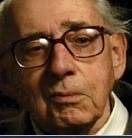
Silvio Ortona
Despite great obstacles, Jews throughout occupied Europe attempted armed resistance against the Germans and their Axis partners. They faced overwhelming odds and desperate scenarios, including lack of weapons and training, operating in hostile zones, parting from family members, and facing an ever-present Nazi terror. Yet thousands resisted by joining or forming partisan units. Among them was Silvio Ortona.
Silvio Ortona was born in 1916 in the Piedmont region of Italy. A group of Jewish families had been living in his town for generations, and he remembers being very integrated with the Gentile population while growing up. After graduating from high school, Silvio enrolled at the University of Turin to study law. He received his degree in 1937 and spent several years traveling around Europe. When Italy entered the war on the side of the Axis in 1941, Silvio had just returned to Turin from a trip to England.
With the outbreak of the war and the increasing persecution of Italian Jews, Silvio left Turin for Milan, a city where employers were eager for labor and lax in checking identity papers. He was not the only young Jew to leave Turin for Milan—an entire community of such uprooted youth existed in the city, including Primo Levi, the famous poet, novelist, and Auschwitz survivor. Silvio remembers his years in Turin as a period of political awakening. Raised under the stultifying rule of Mussolini, he and his friends were, for the first time, making contact with the Italian left.
With the fall of Mussolini in 1943, the Germans occupied Italy. Silvio left Milan for Biella, where communist organizers and laborers were beginning to form a core of resistance to Nazi rule.
An industrial center, Biella was the home of one of the very first Garibaldi partisan brigades, the Fratelli Bandiera, of which Silvio became a member. The band spent the winter of 1943 in a camp in the mountains, biding their time and gathering their forces to launch an attack against the fascists. In the spring, they began conducting raids and sabotage missions.
Silvio’s group established Radio Liberta, an underground radio channel that broadcasted anti-German propaganda. After the war, Silvio married another former partisan, Ada della Torre, and the two settled in Turin. Their children would become student organizers in the Italian protests of 1968.
Critical Thinking Questions
- What obstacles and limitations did Jews face when considering resistance?
- What pressures and motivations may have influenced Silvio Ortona's decisions and actions? Are these factors unique to this history or universal?
- How can societies, communities, and individuals reinforce and strengthen the willingness to stand up for others?

